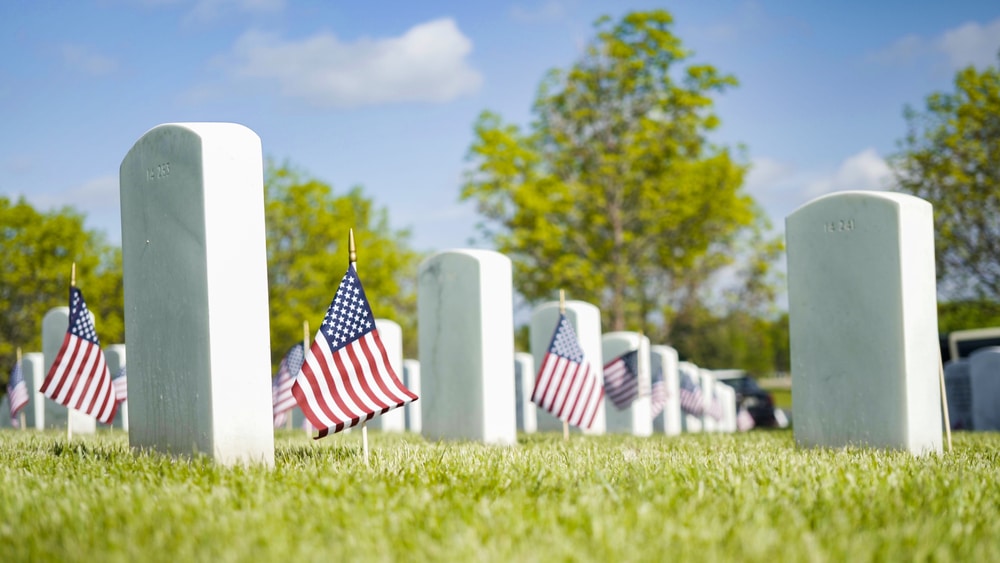If you’re like most Americans, you probably have some fun plans for Memorial Day weekend. Perhaps you’ll spend time with friends or family, enjoy some time outdoors, eat burgers and potato salad, or attend a local parade. But as you celebrate, remember to keep in mind the true meaning of the holiday. Memorial Day was established to mourn the U.S. military personnel who have died while serving in the armed forces. Scroll down to learn a little more about the complex history of Memorial Day.
History of Memorial Day
The Origin of the Holiday
If you were expecting a simple answer about the origin of this beloved American holiday, prepare to be surprised! In fact, the U.S. Department of Veterans’ Affairs (VA) recognizes that approximately 25 places claim to have originated Memorial Day. Most of these were local springtime tributes to the Civil War dead in Southern states. However, many of these claims are simply myths, and others refer to one-time cemetery dedications, funeral tributes, or other events.
Clearly, it’s extremely difficult to separate fact from fiction when it comes to the history of Memorial Day. How difficult? In 2014, scholars attempted to determine the facts underpinning the origin of Memorial Day in The Genesis of the Memorial Day Holiday in America. According to the book’s abstract, it “shows that most of the better-known stories [about the origination of the Memorial Day holiday] are mere myths. Years of painstaking research reveal a story that was well known for decades but lost in a proliferation of local legends in the late 19th and early 20th centuries.” To learn about their findings, check out the book!
Despite those murky origins, we do know that there were many precedents to Memorial Day. Local events were celebrated in both Northern states and Southern states following the Civil War. Eventually, these separate celebrations were joined under one name – Decoration Day – and extended to honor all Americans who died while in the U.S. military service, not just those who died in the Civil War. The name Decoration Day referred to the age-old tradition of decorating the graves of soldiers with flowers, wreaths, and flags.
Gradually, Decoration Day began to be known as Memorial Day. New York was the first state to designate Memorial Day as a legal holiday, in 1873. Other cities, communities, and states followed in the late 1800s. Although the name Memorial Day was attested in 1882, it did not become the official name by federal law until 1967.
Moving the Date of Memorial Day
In 1971, under the Uniform Monday Holiday Act, Memorial Day was moved from its traditional date (May 30th) in order to land on a specified Monday (the last Monday in May). This was done to make it convenient for Americans to celebrate the holiday with a three-day weekend. Although some states were initially confused by this change and others refused to comply, all 50 states were celebrating Memorial Day on the designated day within a few years.
_____
Today, many Americans observe Memorial Day by visiting cemeteries or memorials, spending time with loved ones, watching parades, or enjoying local events. It’s also known as the unofficial start of the summer season. How will you celebrate Memorial Day this year?
At Springhouse Village, we know how important it is to enjoy your retirement in a lively and welcoming environment. We make it easy for our residents to be active participants in our community. Whether that means encouraging residents to join an exercise class or assisting them in starting a garden club, we strive to help our residents thrive. To learn more about the amenities and services we offer, contact Springhouse Village today by sending us a message online or calling 417-708-3403.

